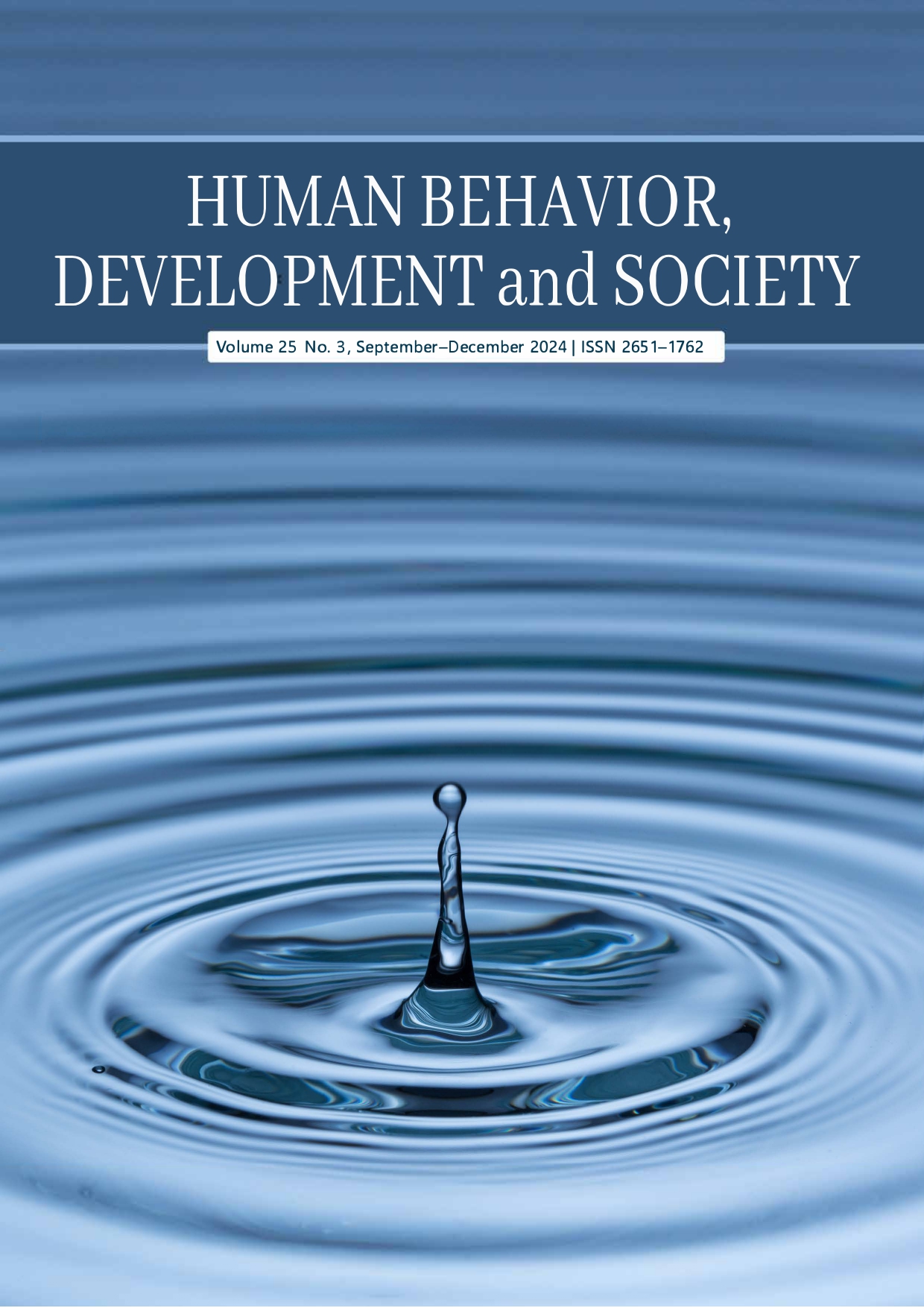Perceptions of Change Management Among Filipino Leaders in Multinational Educational Institutions: A Multiple Case Study
Main Article Content
Abstract
Perceptions of change management strategies were explored among Filipino educational leaders working in multinational institutions in Thailand and the United Arab Emirates (UAE). The views of three leaders were examined through a multiple case study approach. A participant from Thailand emphasized resilience and strict adherence to policy within a challenging cultural context. Contrastingly, another Thailand participant spoke of the need for empathetic leadership and proactive acceptance of change, while the participant from the UAE viewed change management as a comprehensive framework necessitating leadership as its driving force. The findings revealed that while a leader may focus on maintaining consistency amid policy changes, leaders may also advocate for an adaptive and supportive environment. This research indicated the critical need for culturally sensitive leadership and adaptive strategies in managing change, offering new insights into the interplay between leadership styles and change management in diverse educational settings. Furthermore, the findings challenge existing theories by highlighting the success of varied approaches to change management in different cultural contexts. The importance of empathy and flexibility in effective leadership was also accentuated.
Article Details

This work is licensed under a Creative Commons Attribution-NonCommercial-NoDerivatives 4.0 International License.
Copyright: Asia-Pacific International University reserve exclusive rights to publish, reproduce and distribute the manuscript and all contents therein.
References
Adams, D., & Velarde, J. M. (2021). Leadership in a culturally diverse environment: Perspectives from international school leaders in Malaysia. Asia Pacific Journal of Education, 41(2), 323–335. https://eric.ed.gov/?id=EJ1295726
Alsharari, N. M. (2018). Internationalization of the higher education system: An interpretive analysis. International Journal of Educational Management, 32(3), 359–381. https://eric.ed.gov/?id=EJ1176270
Altbach, P. G., & Knight, J. (2007). The internationalization of higher education: Motivations and realities. Journal of Studies in International Education, 11(3–4), 290–305. https://eric.ed.gov/?id=EJ803542
Boylan, S. A., & Turner, K. A. (2017). Developing organizational adaptability for complex environment. Journal of Leadership Education, 16(2), 183–198. https://eric.ed.gov/?id=EJ1138760
Cameron, E., & Green, M. (2019). Making sense of change management: A complete guide to the models, tools and techniques of organizational change. Kogan Page.
Creswell, J. W., & Creswell, J. D. (2017). Research design: Qualitative, quantitative, and mixed methods approaches. Sage.
de Wit, H., Gacel-Avila, J., Jones, E., & Jooste, N. (Eds.). (2017). The globalization of internationalization: Emerging voices and perspectives. Taylor & Francis.
Gay, G. (2015). The what, why, and how of culturally responsive teaching: International mandates, challenges, and opportunities. Multicultural Education Review, 7(3), 123–139. https://eric.ed.gov/?id=EJ1131394
Jin, Y. (2023). The rise of education globalization: Embracing opportunities and overcoming challenges. Advances in Economics and Management Research, 8(1), 62–71. https://doi.org/10.56028/aemr.8.1.62.2023
Lemana II, H. E. (2022). Filipinos and Indians as English language teachers in the Emirates: A phenomenology. International Journal of Qualitative Research, 2(1), 1–18. https://ojs.literacyinstitute.org/index.php/ijqr/article/view/480
Lemana II, H. E., Milan, J., Talidong, K. (2024). On advancing internationalization of Thai higher education: Voices of foreign faculty members. Psychology and Education, 22(5), 598–606. https://scimatic.org/storage/journals/11/pdfs/3281.pdf
Macapagong, E., Maguate, G., & Geroso, M. J. S. (2023). Living and teaching internationally: Teachers' experiences, prospects and challenges. International Journal of Scientific Research and Management, 11(9), 2882–2894. https://doi:10.18535/ijsrm/v11i09.el04
Modesto, O. P. (2020). A phenomenological study of Filipino immigrant teachers in South Texas. The Qualitative Report, 25(8), 3149–3162. https://nsuworks.nova.edu/tqr/vol25/iss8/18/
Moşteanu, N. R. (2024). Adapting to the unpredictable: Building resilience for business continuity in an ever-changing landscape. European Journal of Theoretical and Applied Sciences, 2(1), 444–457. https://doi:10.59324/ejtas.2024.2(1).37
Mun, R. U., Ezzani, M. D., & Lee, L. E. (2020). Culturally relevant leadership in gifted education: A systematic literature review. Journal for the Education of the Gifted, 43(2), 108–142. https://eric.ed.gov/?id=EJ1254716
Murairwa, S. (2015). Voluntary sampling design. International Journal of Advanced Research in Management and Social Sciences, 4(2), 185–200.
Phillips, J., & Klein, J. D. (2023). Change management: From theory to practice. TechTrends, 67(1), 189–197. https://link.springer.com/article/10.1007/s11528-022-00775-0
Robert, G. L., & Maher, K. J. (2015). Perceptions of leadership and their implications in organizations. In J. S. Carroll (Ed.), Applied social psychology and organizational settings (pp. 129–154). Psychology Press.
Rogayan Jr, D. V. (2018). Why young Filipino teachers teach? Asia Pacific Higher Education Research Journal (APHERJ), 5(2), 48–60. https://po.pnuresearchportal.org/ejournal/index.php/apherj/article/view/1028/377
Sereni, L. N., & Yanto, E. S. (2021). A story of South-East Asian TESOL why teach abroad: Its opportunities and challenges. Journal of Languages and Language Teaching, 9(3), 264–278. https://doi.org/10.33394/jollt.v9i3.3978
Sipe, M., Lemana, H., & Saludadez, J. (2024). Surviving in a Provisional Workplace: Foreign Lecturers’ Practices in an Asian HEI. Journal of Education Culture and Society, 15(1), 349-370.
Skarin, C., & Nilsson, S. H. (2022). Disruptive external forces as a catalyst for service innovation: Influencing forces of facility service innovation processes due to changing customer behavior [Bachelor thesis, Karlstad Business School]. https://www.diva-portal.org/smash/get/diva2:1642762/FULLTEXT01.pdf
Stake, R. E. (2013). Multiple case study analysis. Guilford Press.
Sumalinog, G. G. (2022). Lived Experiences of the Filipino English teachers abroad: The drawbacks in focus. International Journal of Science and Research (IJSR), 11(2), 41-47.
Tang, N. K. (2019). Leadership and change management. Springer.
Ulla, M. B. (2021). Filipinos as EFL teachers in Bangkok, Thailand: Implications for language education policy in the ASEAN region. RELC Journal, 52(3), 588–602. https://doi.org/10.1177/00336882198797
Uytico, B. J., & Abadiano, M. N. (2020). Teachers’ tales: In-depth exploration on experiences of millennial Filipino teachers abroad. Journal of Critical Reviews, 7(17), 1952–1960. https://doi:10.31838/jcr.07.17.242
Warrick, D. D. (2023). Revisiting resistance to change and how to manage it: What has been learned and what organizations need to do. Business Horizons, 66(4), 433–441.
Zalli, E. (2024). Globalization and education: Exploring the exchange of ideas, values, and traditions in promoting cultural understanding and global citizenship. Interdisciplinary Journal of Research and Development, 11(1 S1), 55–55. https://doi:10.56345/ijrdv11n1s109


